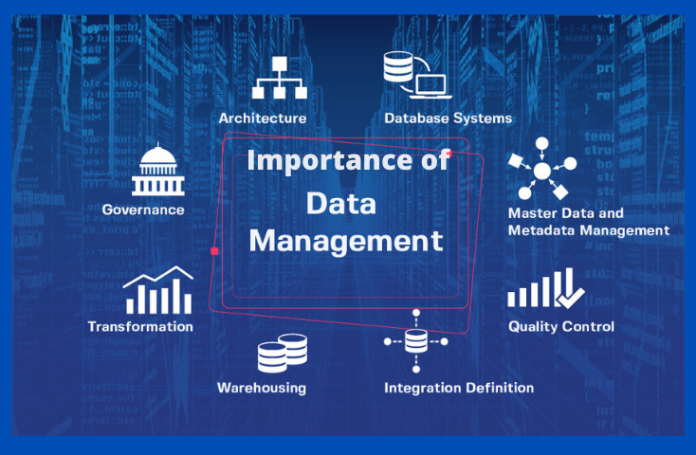Data is often referred to as the new oil in the digital era, signifying its importance as a resource driving the modern economy. With the increase in data generation through various sources, effective data management has become essential for businesses across all industries. Managing data effectively is no longer a luxury but a necessity for companies that wish to remain competitive and efficient in today’s market.
What is Data Management?
Data management is the process of ingesting, storing, organizing, and maintaining the information created and collected by an organization. It includes many tasks like data integration, security, quality assurance, and governance. Effective data management ensures that data is accurate, accessible, and secure, enabling organizations to make better decisions, optimize operations, and meet regulatory compliance requirements.
The Advantages of Data Management
| Advantage | Explanation |
| Better Decision Making | Data management provides access to high-quality data, which is crucial for accurate analytics, leading to informed decision-making processes. |
| Increased Efficiency | Organized data allows for streamlined processes, reducing time spent on searching for information and minimizing redundancy. |
| Enhanced Data Security | Adequate management of data includes the implementation of security measures to protect sensitive information from breaches. |
| Regulatory Compliance | Proper data management ensures that an organization meets the industry standards and regulations, avoiding potential legal issues. |
| Improved Customer Relationships | High-quality data management leads to a better understanding of customer needs and behaviors, facilitating personalized customer experiences. |
Implementing Effective Data Management Practices
While the benefits of managing data are clear, implementing a successful data management strategy can be complex. Here are a few essential practices that should be part of your data management plan:
- Data Governance: Establish clear policies and procedures that define how data is handled and who is responsible for it.
- Data Quality: Implement processes to ensure the data’s accuracy, completeness, and reliability.
- Data Security: Protect data through cybersecurity measures, access controls, and regular audits.
- Data Storage: Utilize effective solutions that balance accessibility, cost, and security.
- Data Integration: Ensure systems and tools can communicate, enabling a unified view of the data.
Make Data Management Easy
Similarly, in the world of information, data is our treasure, and data management keeps that treasure safe, organized, and easily accessible. Here’s why it’s so important:
- Avoiding Chaos: Just like you wouldn’t want your gems scattered all over, you don’t want your data in a mess. Proper data management helps keep everything in order, making it easy to find what you need when you need it.
- Making Informed Decisions: Imagine if you had a map showing where each gem is located in your chest. That would help you decide which gem to use for different occasions. In the same way, organized data allows businesses and individuals to make informed decisions.
- Saving Time and Effort: Searching for a specific gem in a messy chest would be time-consuming and frustrating. With well-managed data, you save time and effort because you can quickly locate and use the information you need.
- Security and Protection: You will only leave your treasure chest if you are guarded. Similarly, data management includes measures to keep your information safe from unauthorized access, loss, or damage. It is essential in an age where digital information is valuable.
- Adapting to Changes: Gems might lose their shine if not properly cared for. Likewise, data needs to be updated and maintained to stay relevant and valuable. Proper data management ensures that information is up-to-date and adaptable to changing needs.
- Compliance and Accountability: Just as there are rules for handling valuable items, there are regulations for managing certain data types. Following these rules ensures you’re accountable and compliant with legal and ethical standards.
Data management is about treating your information as a valuable asset, ensuring it’s organized, secure, and ready to use whenever you need it. Whether you’re an individual or a business, taking good care of your data helps you navigate the vast sea of information efficiently.
Best Practices
To close, here are a few best practices for efficient data management:
- Continuously evaluate and refine your data management strategies.
- Involve stakeholders from every department in the data management process.
- Invest in training to ensure your team is equipped to handle the complexities of data management.
- Adopt scalable solutions that can grow with your company’s data needs.
- Maintain an open line of communication about data policies and procedures across the organization.
Conclusions
Proper data management is integral for a business’s success and longevity. It empowers organizations with valuable insights, operational efficiency, and a competitive edge. By adhering to best practices and remaining vigilant against potential threats, a company can reap the extensive benefits of a well-executed data management strategy. Ultimately, well-managed data is both a strategic asset and a catalyst for growth in the business world.



